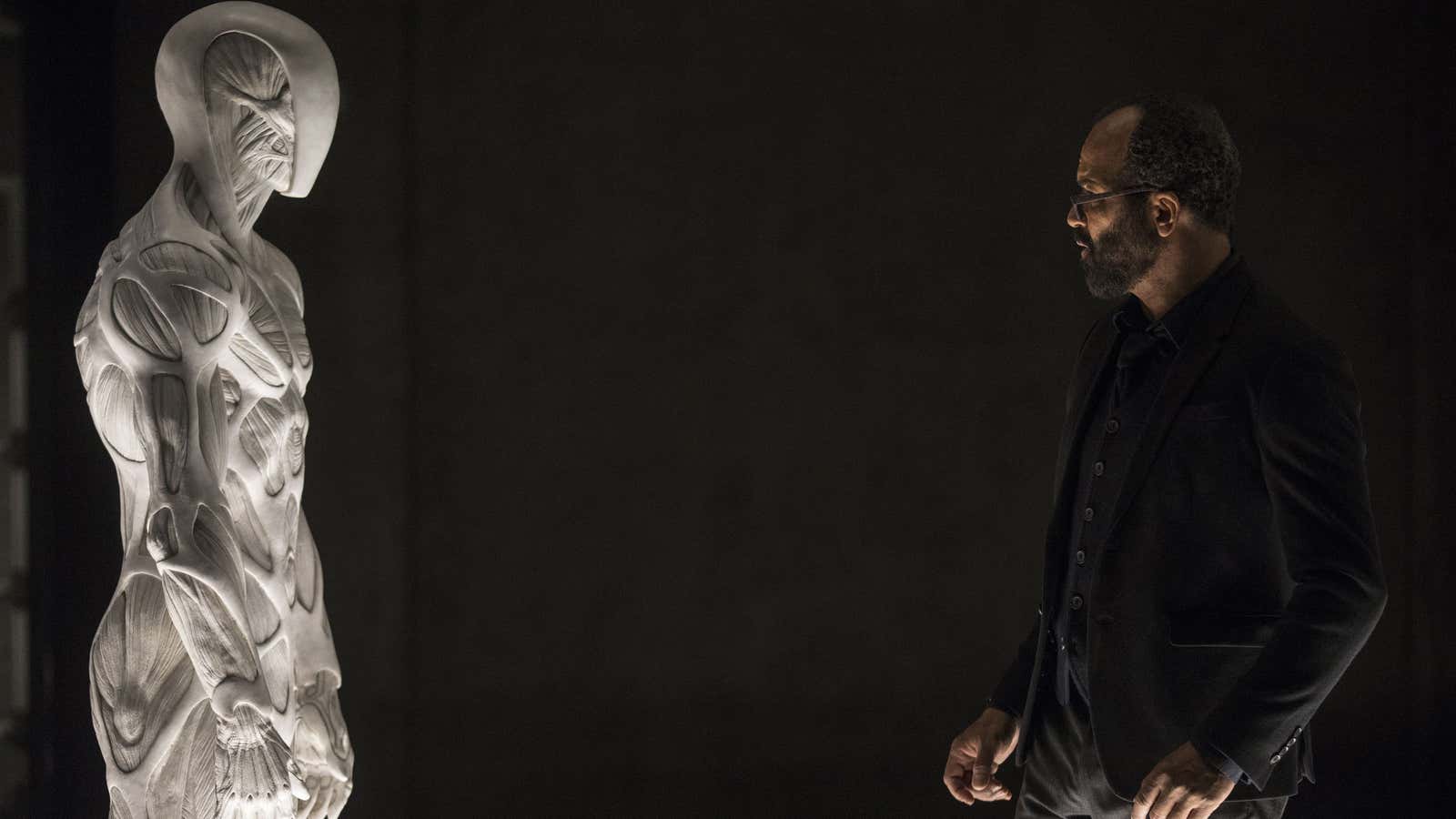The April 29 episode of Westworld revealed that the real value of the HBO show’s titular robot theme park is the guests. It turns out that Westworld is pretty much a futuristic version of what Facebook is today—an elaborate data-collection operation functioning under the guise of social experience.
Before the second season of Westworld began, co-creator and showrunner Jonathan Nolan hinted that it would explore the very modern issue of data privacy. “Any similarities to any social media who may or may not be photocopying our fucking brains may or may not be coincidental,” he joked at the Tribeca Film Festival. The season’s first episode confirmed what some fans had long suspected: Westworld the park was not only secretly logging guests’ experiences, but also harvesting their DNA.
Last night’s episode made clear that covert data collection was Westworld’s core business all along, and the hyper-realistic robot hosts just a ploy to attract a rich and powerful clientele. In a flashback scene, William (who later becomes the character we know as “the Man in Black”), convinces his father-in-law, James Delos, to invest in the nascent park despite his reservations about its business potential.
“Half of your marketing budget goes to figuring out what people want, because they don’t know,” William says. “But here, they’re free. Nobody’s watching, nobody’s judging. At least that’s what we tell them. This is the only place in the world where we get to see people for who they really are. And if you don’t see the business in that, then you’re not the businessman that I thought you were.”
We don’t yet know what Westworld’s operators are doing with this data. One popular theory suggests they’re using the various misdeeds of guests to blackmail them. Another posits that they’re using guest DNA to create robot clones of important people. A third one—popular on Reddit this week—holds that Westworld is cataloguing human data to somehow achieve immortality.
Whatever the exact purpose, Westworld’s strategy bears a resemblance to that of Facebook’s—especially in light of the Cambridge Analytica scandal, in which a British political consulting firm used the data of tens of millions of Facebook users without their permission. Facebook, like Westworld, may be a social experience business, but it’s not in the business of social experience. It makes money by monitoring every detail of your interactions with the service and then selling access to your newsfeed on to advertisers.
It’s easy to see how a company like Facebook could naturally evolve into one like Delos, the hypothetical corporation that owns Westworld. (We don’t know precisely when in the future the show takes place, though an HBO viral marketing campaign suggested it may be in 2052.) Nolan’s series appears to subscribe to the growing theory that as technology advances, your privacy erodes. The more that companies can learn about people’s behavior, the more they will, inevitably, exploit that information for profit or power. Westworld is just Facebook with cool robots.
